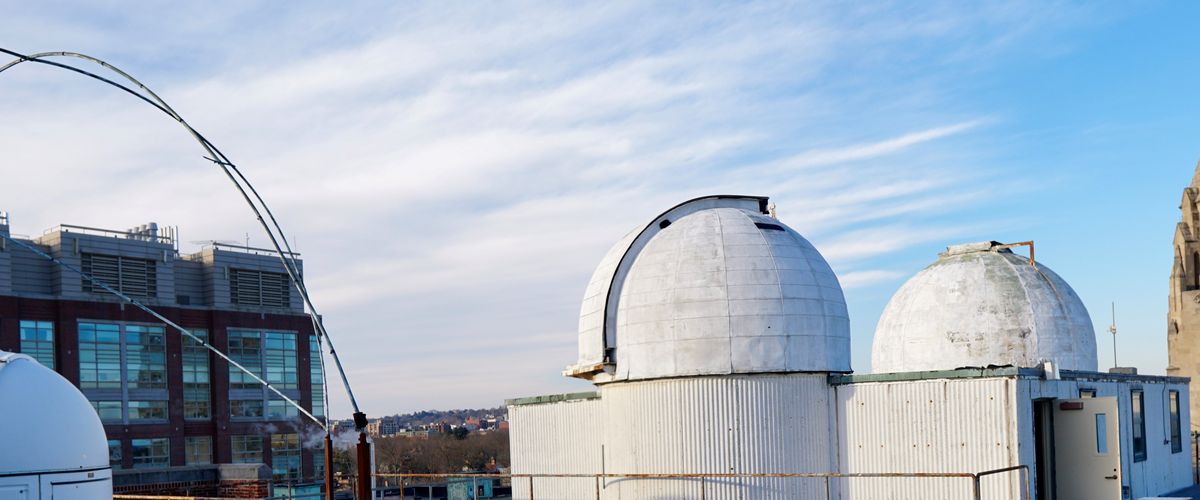What can I do with a Degree in Astronomy?
Many university students are interested in astronomy, but may be concerned about employment after college. The number of astronomy and space science jobs is limited, but the number of qualified people seeking those jobs is also limited. Additionally, a degree in a physical science means that the graduate has developed the problem solving skills that high tech companies and others desperately need. Employment prospects vary according to the state of the economy and government funding of research, but historically Boston University astronomy graduates have been successful in obtaining challenging and rewarding positions.
Choosing Your Program of Study
The Department of Astronomy provides a range of courses and programs for students planning careers in astronomy, space science, or related fields. The Astronomy and Physics major involves rigorous study in physics and calculus in addition to astronomy. This prepares a student for graduate study leading to a masters and/or Ph.D. degree in astronomy, astrophysics, physics, or other technical fields. The Astronomy major is less intense in physics study, yet still provides students with solid foundations in the physical sciences.
Gaining Research Experience
A BA degree in Astronomy or Astronomy and Physics prepares students for careers in science education, management, computing, instrumentation, or science writing (some of which may require more years of graduate study). Qualification for such fields is enhanced when students work in the research groups of astronomy professors through work-study or student employment, and/or directed study research. The wide range of research being conducted within the department and its allied research centers provides ample opportunity for undergraduates to gain research experience.
Career Opportunities
Our many alumni hold a wide variety of professional positions. Several have been data assistants at NASA’s Space Telescope Science Institute or at the Harvard-Smithsonian Center for Astronomy in Cambridge. Some switched fields to economics, traffic engineering, and other fields in which they applied the problem solving skills learned as astronomy majors. Others include scientific computer programmers, a team member on a telescope construction project, an accountant at a science museum, a data analysis and instrument programmer for NASA’s AXAF X-ray space observatory, and a senior research associate in Boston University’s Center for Space Physics.
In addition, there are many examples of graduates who went on to obtain advanced degrees and rewarding careers. Past alumni have included a mission planner at NASA, and an education officer at the Hayden Planetarium of the Boston Museum of Science, and many others received PhDs and are now scientists at observatories or college professors.
AIP Report on Career Paths
For additional general insight into career paths for students with Astronomy BA or MA degrees, the American Institute of Physics regularly reports career information in aggregate for astronomy bachelor’s degree holders. Their July 2023 update on the results from recipient follow-up surveys can be found online.
Questions?

Catherine Espaillat
Professor; Director of Undergraduate Studies; Director, Institute for Astrophysical Research
cce@bu.edu